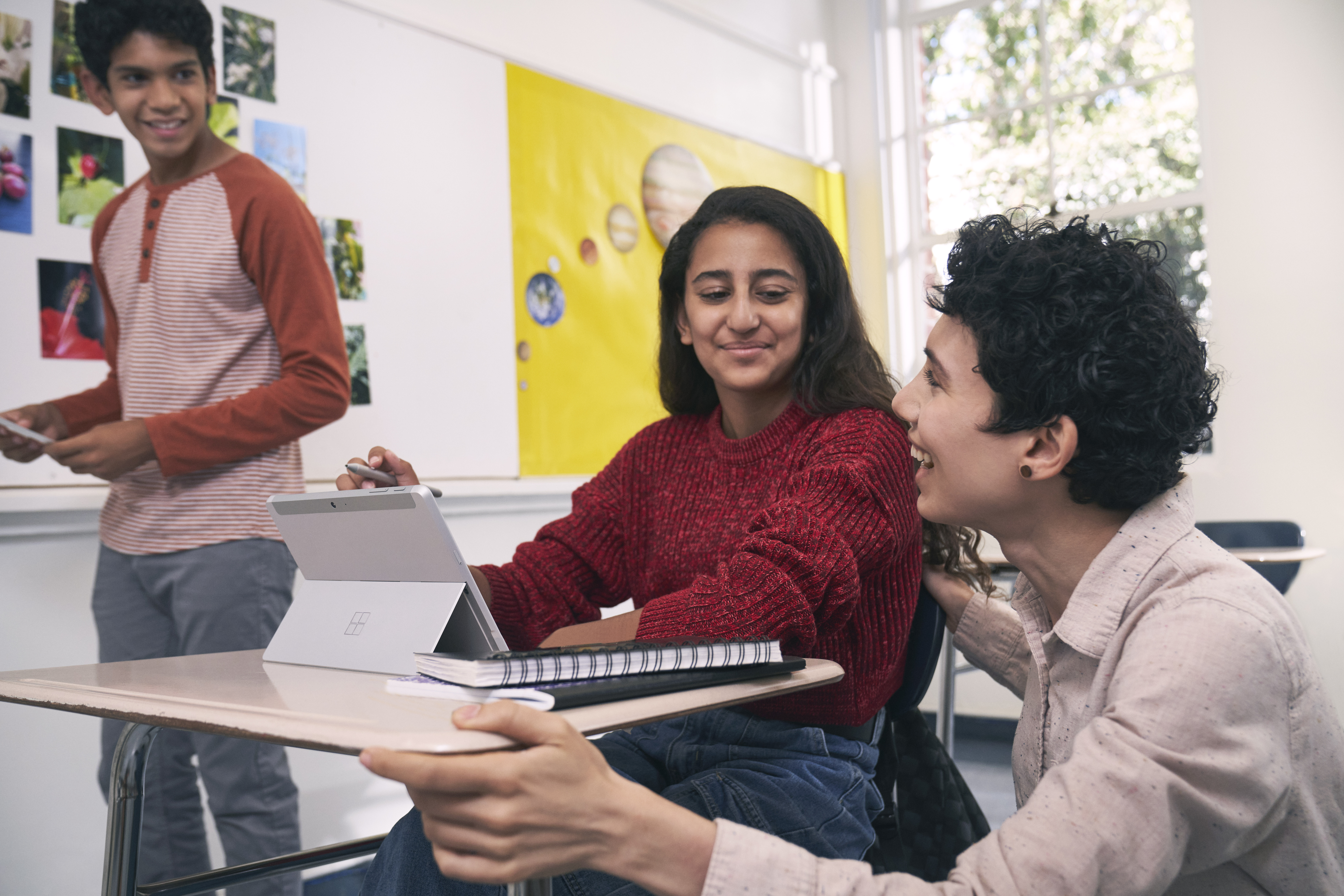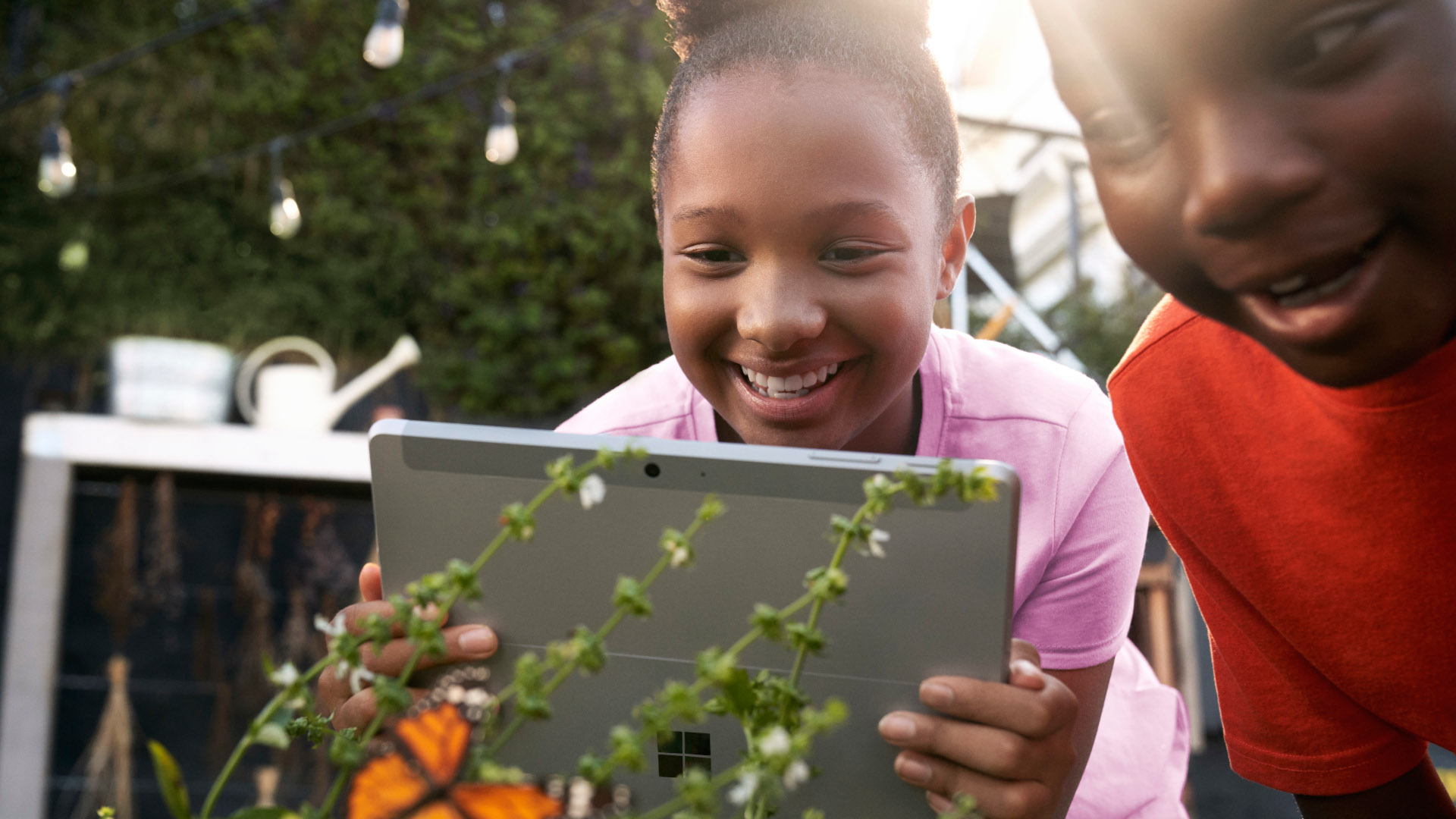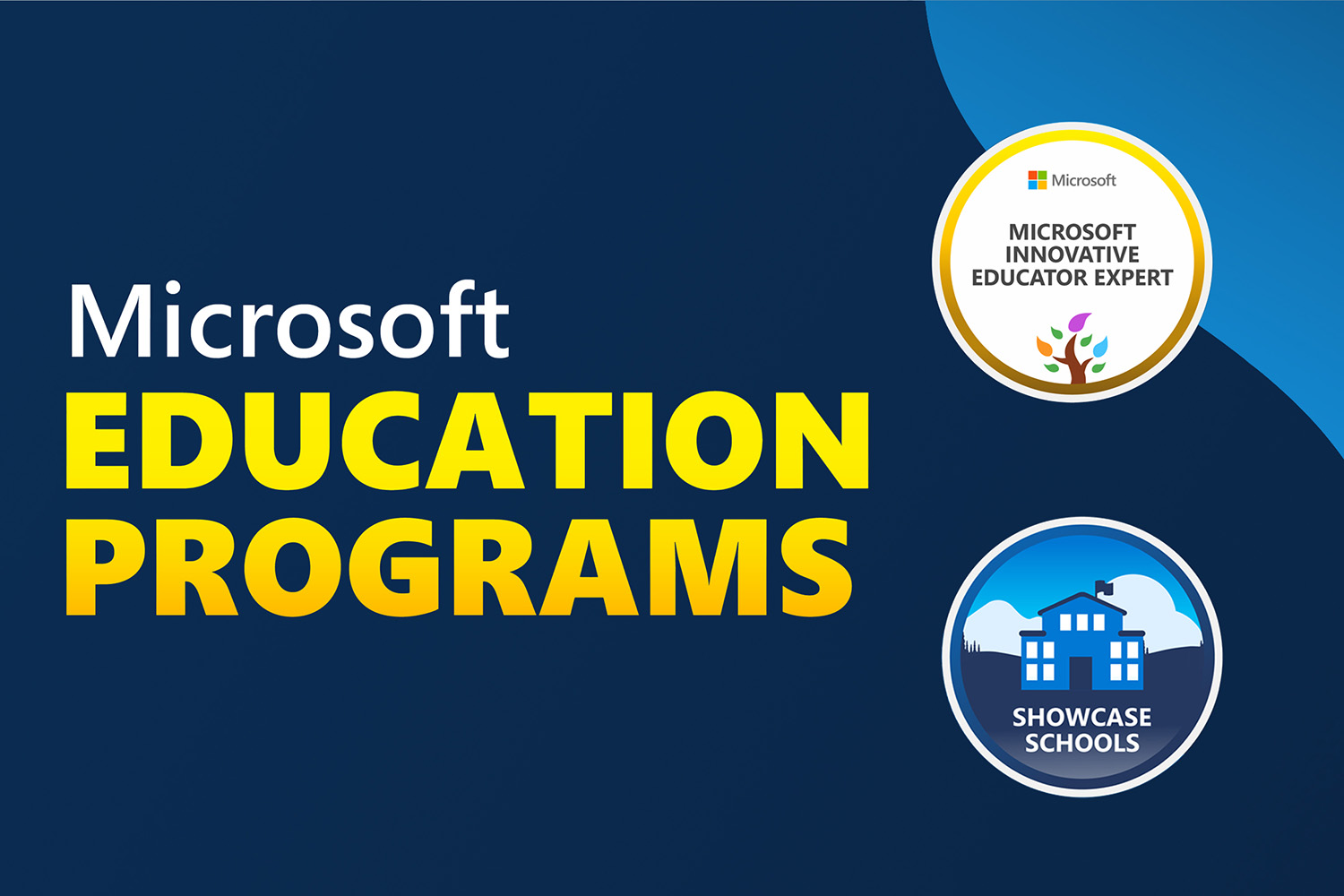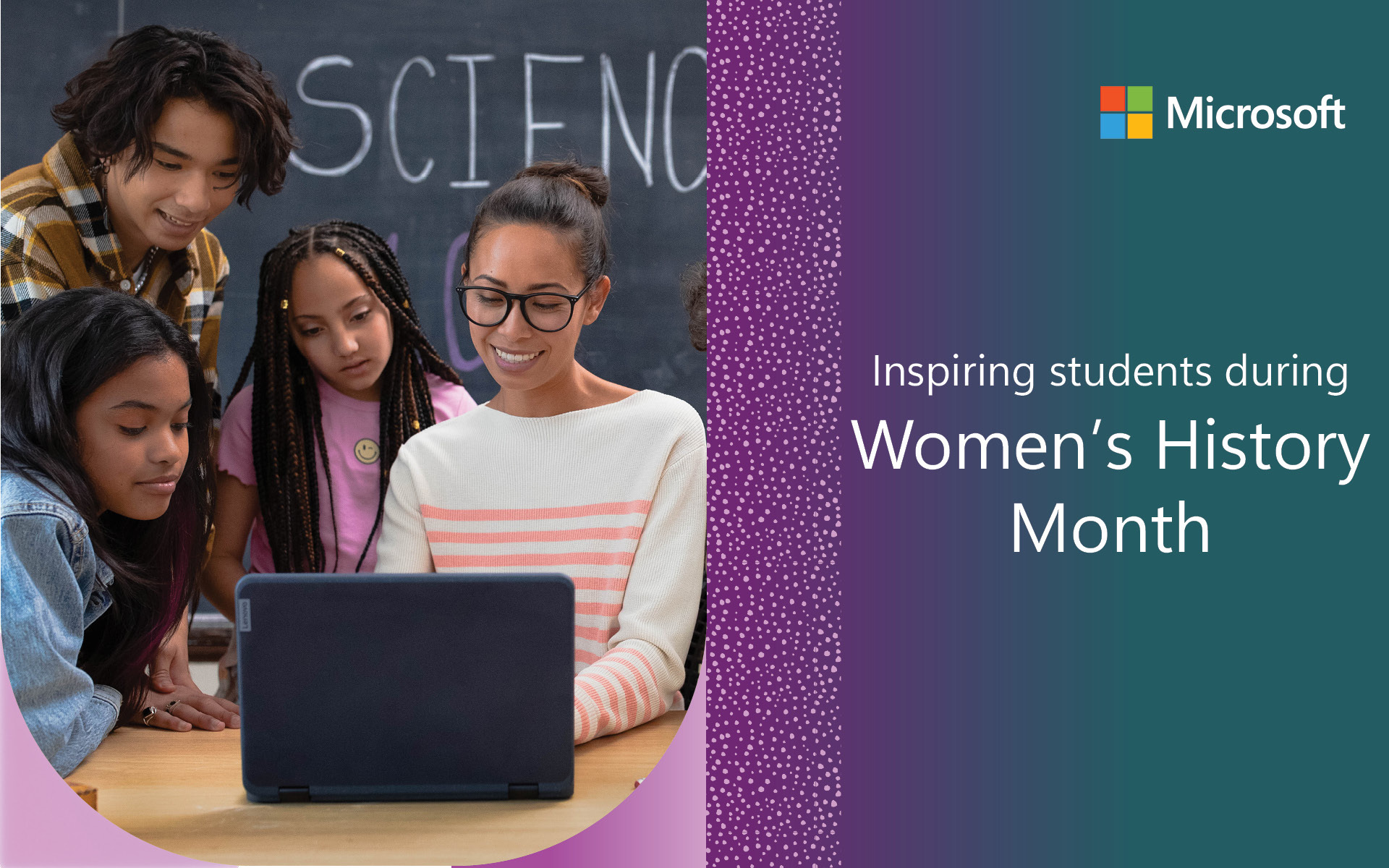“Students really see technology as an opportunity to take humanity and the world to the next level.” – Guada Casuso, Principal Product Manager Autonomous Systems, Microsoft
As society continues to grow and evolve at an accelerated pace—due to the speed and scale of our technological achievements, the challenges of the modern world are becoming increasingly complicated and harder to address. Today’s students will be tasked with solving some of the most complex environmental, social, and economic issues of any generation in history. And they will rely on artificial intelligence (AI) to do it, as that’s the only tool capable of providing them with the means to analyze and interpret large scale phenomena that sometimes involve millions of data points.
During Microsoft’s Imagine Cup Junior Virtual AI Hackathons, students from all over the world have proposed a number of impactful ideas that leverage the fantastic potential of AI for Good. Some of these ideas involved saving elephants and griffon vultures from becoming extinct, helping children with autism interpret the emotions of those around them, designing a smart trash bin that facilitates selective recycling, and deploying AI-powered aquabots that can safely identify and remove trash from garbage patches in the ocean.
It’s crucial to make young people aware of AI and to get them involved in the use of it for the future. AI is predicted to add an estimated US $15 trillion to the global economy by 2030. Evidence of this enormous economic potential can be seen today as we witness the impact of AI on workflows and outcomes across multiple industries such as retail, healthcare, and manufacturing. Most importantly, AI can help us better plan for and design effective responses to the world’s most pressing challenges, including quality education for all, respect for human rights, equality and inclusion, and environmental sustainability. As a result, there is now an urgent need to demystify AI and democratize the understanding of it for larger non-technical audiences through appropriate AI readiness programs.
“With technology changing at such a rapid pace, becoming a lifelong learner who continually updates their skillset will be key to having a long and successful career, and an essential part of our ability to make the most of AI.” – Alexa Joyce, Digital Transformation & Skills Director, EMEA, Microsoft Education
Today, in-depth AI training and knowledge is typically limited to large organizations, technology companies, research institutes, and higher education communities. Governments all over the world are working on creating comprehensive national AI strategies to develop a technical, social, and ethical understanding of AI among the general student population and to equip the future workforce with the appropriate skills. UNESCO consistently supports these efforts through various means, including the provision of tools that develop students’ critical thinking as well as media and information literacy competencies. Being better informed enables them to use technology ethically, creatively, and purposefully. UNESCO's YouthMobile initiative aims to enhance coding learning opportunities for students around the world, both as a tool for developing complex learning skills and as a resource for solving local sustainable development problems.
To set students on a path to building their grand visions of the future and prepare them for the emerging AI-fueled economy, in 2022, Microsoft, KPMG, and UNESCO will work together to organize a new series of Imagine Cup Junior Virtual AI Hackathons.
The events will focus on students ages 13 to 18 years old from all over the world, with a dedicated event for young women to be held in March. Recognizing that gender bias and social norms often preclude girls and young women from pursuing an education in digital skills, Microsoft and UNESCO’s Global Education Coalition—a multi-stakeholder partnership to protect the right to education in the context of the pandemic—are expanding girls’ opportunities to access hands-on, high-quality learning through initiatives such as the girls-only hackathon.
The hackathons are open to all students, including those from vulnerable backgrounds who are more likely to miss out on AI training and knowledge. Today, the disparities in access to technology education—both between and within countries—have been further augmented by the significant impact of the COVID-19 crisis.
By concentrating our resources and years of experience, we’ve envisioned a new type of hackathon—one that integrates multiple perspectives and explores different approaches to teaching AI to empower students across the world to become future-ready.
The overall theme of the hackathons is AI for Good, inspiring students to explore the possibilities of AI and envision ways in which it can be used to bring positive change to the world. These objectives will be modeled after the United Nations’ Sustainable Development Goals.
Participants can look forward to a rich and layered experience designed to help them develop a comprehensive understanding of AI through a series of thought-provoking questions, exercises, and creative challenges that will change how they see the world and their role in it. They will learn how to correctly frame an AI problem, identify the practical approach to AI development, and take the right steps towards implementing their AI-based solutions.
Students will develop domain-specific skills in statistical data, computer vision, and natural language processing. By engaging in practical exercises, they will learn about data collection, data cleaning, model choice and statistical testing, as well as work with regression, decision trees, and random forests to solve sizeable problems.
This year, hackathons will not be exclusive to high-school students. On February 26-27, 2022, KPMG will lead a Youth Empowerment AI Hackathon supported by Microsoft, UNESCO, and Enactus. University students aged 18-25 will receive AI training and work together to develop new ideas designed to empower economically disadvantaged young people across the globe.
“We are excited to learn about the innovative, data-driven ideas young people have for us to take action in communities,” said Serena Brown, KPMG Global Head of Corporate Citizenship. “Young people can be innovative agents of change, whom we are committed to support and empower.”
The winner will be determined by a panel of top executives and will be announced on March 23, 2022. The idea will later be incorporated into KPMG’s Our Impact Plan.
It is safe to say that 2022 is already shaping up to be an exciting year for AI enthusiasts. Registrations for all three of the upcoming Imagine Cup Junior Virtual AI Hackathons are now open to students everywhere. What’s more, students who are looking to continue their exploration of AI beyond the hackathons can take on a new challenge: the 2022 Imagine Cup Junior global AI competition, an event that encourages participants to share their tech ideas for tackling some of today’s most pressing global issues.
Those who are serious about changing the world through AI and wish to take their skills to the next level should also visit Microsoft Learn. The vast collection of free, professionally developed modules and learning paths will help students cover everything from the basics to expert-level training. Students can set their own schedule and earn industry-recognized Microsoft Certifications to validate their achievements.




